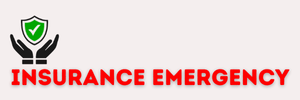Introduction
Car accidents are disturbing, but overseeing insurance declares sometime later can add to the disappointment. Nonetheless, knowing how to explore the insurance interaction can assist you with capitalizing on your contract. In this article, we’ll review fundamental tips to boost your car accident insurance payout, make sense of the upsides and downsides of various methodologies, and give a nitty gritty aide on the protection guarantee process.
1. Understand Your Policy Coverage
What It Includes: Each car insurance policy is unique, so knowing your specific coverage is essential. Car insurance generally includes:
- Liability Coverage: Covers damages to the next party assuming you are to blame.
- Collision Coverage: Covers damages to your car after an incident.
- Comprehensive Coverage: Covers non-crash damages like robbery or destructive occasions.
- Uninsured/Underinsured Motorist Coverage: Shields you expecting that the to fault party needs satisfactory security.
- How It Helps Maximize Payout: Understanding your coverage limits and deductibles will clarify how much you can expect from the insurance payout and identify areas to strengthen if you’re underinsured.
2. Document the Accident Scene Thoroughly
Steps for Documentation:
- Photos and Videos: Catch damage to the two vehicles, any wounds, street conditions, and slide marks.
- Witness Information: Get contact data for any observers who saw the mishap.
- Police Report: Call the police to make an authority report, which is a fundamental record for claims.
Pros:
- Solid proof backings a higher payout and limits the opportunity of debates.
- Assists insurance agents with figuring out the full degree of harms and obligation.
Cons:
- Gathering proof can be testing on the off chance that you’re harmed or in a high-stress circumstance.
- A few states require accident reports just for critical harm, so minor mishaps may not include police.
3. Get a Thorough Repair Estimate
Tips for Repair Estimates:
- Use Multiple Sources: Obtain estimates from multiple repair shops to understand the accurate cost of repairs.
- Request a Detailed Breakdown: Ensure the estimate covers labor, parts, and any other applicable charges.
Pros:
- Increases the likelihood of receiving a fair payout for repairs.
- Allows you to negotiate with insurers if the initial offer is low.
Cons:
- Finding reliable repair shops for estimates can be time-consuming.
- Insurers may still conduct their own estimate and try to reduce costs.
4. Don’t Accept the First Offer from the Insurance Company
Insurance organization typically plan to settle affirms quickly and at the most diminished cost possible. Despite the way that it very well may be captivating to recognize their most significant recommendation, you can regularly wrangle for a higher payout.
How to Negotiate:
- Review Your Documentation: Use photographs, fix gauges, and police reports as influence.
- Stay Calm and Professional: Express worries about the payout sum obviously and really.
- Consider Hiring a Public Adjuster: An expert agent can haggle with the insurance company for your benefit for a charge.
Pros:
- Possibly expands the settlement sum.
- Shows the safety net provider that you are educated and proactive about your case.
Cons:
- Negotiating takes time and requires persistence.
- Hiring a public adjuster adds additional costs, although it may be worth it for substantial claims.
5. Get Medical Treatment and Keep All Medical Records
In the event that you or a traveler supported wounds, it’s fundamental to certainly stand out right away and hold all records. This documentation incorporates hospital expenses, specialist’s notes, and treatment plans.
Pros:
- Medical documentation supports injury claims and the need for compensation.
- Ensures that your health and well-being are prioritized after the accident.
Cons:
- Medical bills may initially need to be paid out-of-pocket if the claim process is slow.
- Lack of medical documentation or delayed treatment can weaken your claim.
6. Be Cautious When Talking to Insurance Adjusters
Insurance specialists are gifted at presenting requests that could lead you to accidentally downplay the damage or wounds. To try not to endanger your case:
- Limit Conversations: Only answer what’s asked and avoid speculation.
- Do Not Admit Fault: Even a casual statement could affect your claim.
Pros:
- Protects you from saying anything that could be used to reduce your payout.
- Keeps the claim focused on facts and evidence.
Cons:
- Interactions can feel tense or adversarial.
- Requires careful and concise communication.
7. Factor in Depreciation and Diminished Value
After a accident, the resale worth of your vehicle might diminish regardless of whether it’s fixed. Diminished regard claims grant you to recover a piece of this lost worth, especially in case the disaster was achieved by another driver.
Steps to File a Diminished Value Claim:
- Research the diminished value of your car model post-accident.
- Submit evidence of the car’s pre-accident market value.
Pros:
- Helps offset the financial loss caused by depreciation after an accident.
- Can provide extra compensation beyond repair costs.
Cons:
- Not all insurers cover diminished value claims, so you may have to negotiate.
- Requires documentation, which can be challenging without recent appraisals.
8. Consider Hiring an Attorney for Serious Claims
If you’re overseeing immense damages, wounds, or a marvelous case, an individual actual issue legal counselor can help with managing your case.
Benefits of Hiring an Attorney:
- Legal Expertise: Lawyers spend significant time in boosting settlements for accident claims.
- Negotiation Power: Lawyers are gifted in haggling for higher payouts.
Pros:
- Often results in a higher settlement than negotiating alone.
- Lawyers handle paperwork, negotiations, and legal hurdles.
Cons:
- Legal fees can be high, especially if the case is prolonged.
- May not be necessary for smaller claims or minor accidents.
9. Keep Detailed Records and Follow Up Regularly
Record each cooperation, including calls and messages with your insurance agency. Keep duplicates of each and every record connected with your mishap and circle back to your case’s advancement to guarantee it’s being handled as quickly as possibly.
Pros:
- Detailed records provide a clear trail if issues arise during the claim process.
- Staying organized and proactive shows the insurer that you are attentive to your claim.
Cons:
- Requires diligence, time, and effort.
- Frequent follow-ups can feel burdensome but are essential to prevent delays.
Pros and Cons Summary
| Pros of Maximizing Insurance Payout | Cons of Maximizing Insurance Payout |
| Higher potential payout | Requires more time and effort |
| Increased protection for medical costs | Additional costs for legal or adjuster services |
| Potential compensation for depreciation | Complex claim procedures |
| Stronger negotiation stance | Emotional and mental toll |
| Better financial stability post-accident | Time-sensitive interactions |
Last Summary
Boosting your car accident insurance payout can feel overpowering, yet it’s feasible with the right procedures. By figuring out your strategy, recording the mishap completely, arranging, and looking for proficient help when vital, you can essentially expand your possibilities getting a fair settlement. Remember, insurance exists to offer help amid hardship, so being proactive and informed can have an immense effect in the outcome of a mishap.



